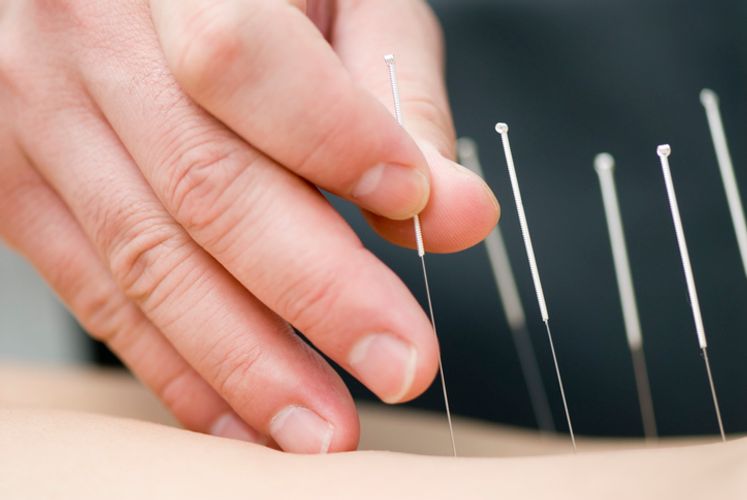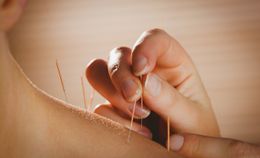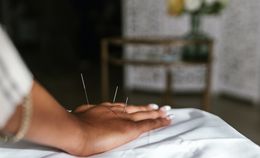In this article, we are going to be examined what is known about acupuncture and its effects on the body. We will be doing this by exploring the effect of acupuncture has different parts of the body and the role both the brain and nervous system have in the effects of acupuncture on the body.
Acupuncture Effects on the Body
Have you ever gone to an acupuncture appointment, and upon departure; you find yourself making a second appointment because as you are exiting, maybe you feel light and ready to face the world? Maybe you have a sensation of wellness and relaxation running through you that you didn't know was possible. Especially if you went in for your acupuncture appointment due to some type of pain? But, why do you feel this way? How does acupuncture affect the body?
2 Main Body Systems
Acupuncture may be beneficial for many health conditions from back pain, to fertility, the main reason for this is because it creates and stimulates changes two main body systems through chemical changes and the release of hormones. Want to know which body systems?
Brain
-
Nervous system
Acupuncture points are believed to stimulate the central nervous system. This, in turn, releases chemicals into the muscles, spinal cord, and brain. These biochemical changes may stimulate the body's natural healing abilities and promote physical and emotional well-being.
The Brain, Nervous System and Acupuncture
Pain is often one of the major reasons why different people seek out acupuncture. The reason why we feel pain is because different parts of our brain send signals to our nervous system and in turn our joints, muscles, and spinal cord. This one study used noninvasive functional magnetic resonance imaging (fMRI) techniques to see into the brain during acupuncture to grow our understanding of how acupuncture impacts and affects the body through central physiological functions.
What was found through the study was that when acupuncture needles are inserted to the many different acupuncture points in the body - each needle creates a stimulus reaction inside of the brain and nervous system. The stimulus reaction that is created turns into signals that not only create but also help maintain a balance between the brain, nervous system, and even other systems in the body including the digestive system and reproductive system.
Essentially, acupuncture can be seen as a traffic light for the brain, especially for pain. How so? The brain has many different pathways controlling different functions of the human body. Acupuncture can activate or show a green light for the descending antinociceptive pathway and deactivate or show a red light for multiple limbic areas and pathways in the brain.
7 Parts of the Brain that are Affected by Acupuncture
There are many different parts of the brain that are affected and influenced by acupuncture:
-
Amygdala
-
Hippocampus
-
Thalamus primary
-
Thalamus secondary
-
Somatosensory cortices
-
Anterior insula and inhibitory
-
Hypothalamus
The study showed that the stimulation caused the acupuncture needle placed at the acupuncture point ST36 lead to fewer signals in the limbic-cerebellum system. The study used this information to further the general understanding of how acupuncture affects the body.
Why? In this study, acupuncture lead to decreased limbic-cerebellum network and pathway in the brain, and may be one of the central characteristics involved in the action of acupuncture. All the neuroimaging data strongly demonstrated that acupuncture affects many sections of the brain including:
Brainstem
-
Limbic
-
Cerebellum
The affect acupuncture has on the body and overall wellness is in turn because of how these brain areas are affected by acupuncture. Health, wellness, and reduced pain are experienced because acupuncture affects the parts of the brain that contribute by creating a shift in the nervous system. Essentially changing how pain is processed.
More Information
Want more information on acupuncture? Check out these other resources:
References:
Bai, L., & Lao, L. (2013). Neurobiological foundations of acupuncture: the relevance and future prospect based on neuroimaging evidence. Evidence-based complementary and alternative medicine : eCAM, 2013, 812568.Retrieved February 4, 2019 from https://www.ncbi.nlm.nih.gov/pmc/articles/PMC3666300/
Li, Q. Q., Shi, G. X., Xu, Q., Wang, J., Liu, C. Z., & Wang, L. P. (2013). Acupuncture effect and central autonomic regulation. Evidence-based complementary and alternative medicine : eCAM, 2013, 267959. Retrieved February 4, 2019 from https://www.ncbi.nlm.nih.gov/pmc/articles/PMC3677642/
Clinical observations have shown that acupuncture analgesia is very effective in treating chronic pain, helping from 50% to 85% of patients (compared to morphine which helps only 30%).















